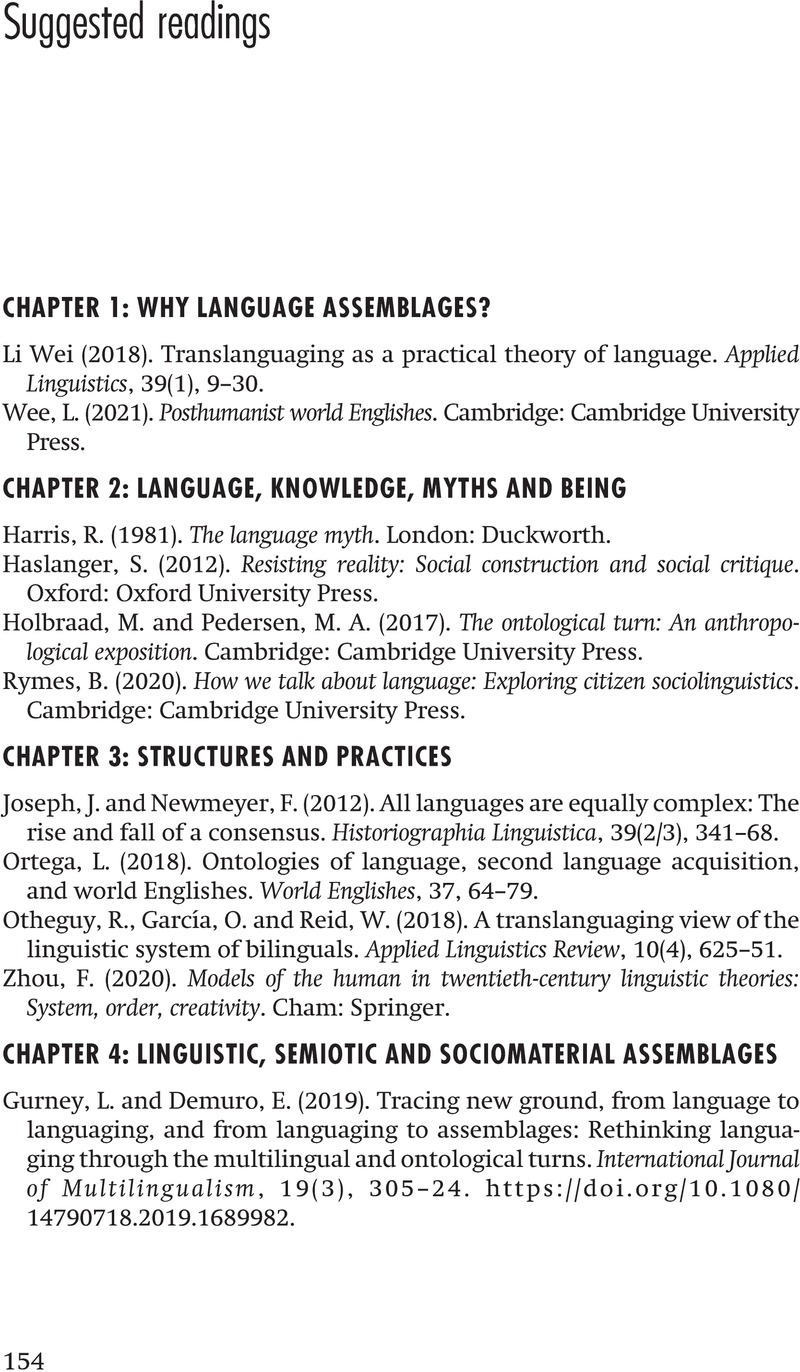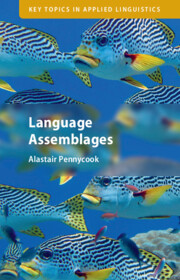Book contents
- Language Assemblages
- Key Topics in Applied Linguistics
- Language Assemblages
- Copyright page
- Contents
- Acknowledgements
- 1 Why Language Assemblages?
- 2 Language, Knowledge, Myths and Being
- 3 Structures and Practices
- 4 Linguistic, Semiotic and Sociomaterial Assemblages
- 5 Other Language Ontologies
- 6 Applied Linguistics as Practical Assemblage
- Suggested readings
- Glossary
- References
- Index
- References
Suggested readings
Published online by Cambridge University Press: 20 June 2024
- Language Assemblages
- Key Topics in Applied Linguistics
- Language Assemblages
- Copyright page
- Contents
- Acknowledgements
- 1 Why Language Assemblages?
- 2 Language, Knowledge, Myths and Being
- 3 Structures and Practices
- 4 Linguistic, Semiotic and Sociomaterial Assemblages
- 5 Other Language Ontologies
- 6 Applied Linguistics as Practical Assemblage
- Suggested readings
- Glossary
- References
- Index
- References
Summary

- Type
- Chapter
- Information
- Language Assemblages , pp. 154 - 155Publisher: Cambridge University PressPrint publication year: 2024

